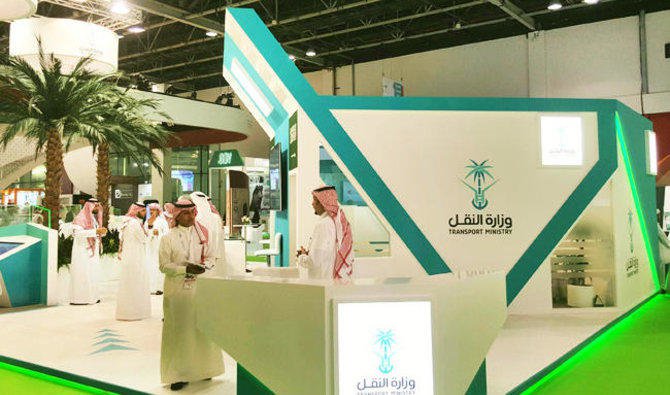
Reliable transport systems key to Saudi Vision 2030, UK minister says
The development of robust, reliable and efficient transport systems is key to the success of Vision 2030, the UK Transport Secretary said in Riyadh on Monday.
Chris Grayling MP is on a visit to Saudi Arabia to discuss collaboration in the transport sector as part of the UK’s commitment to support Vision 2030 and the Kingdom’s ambitious transport and infrastructure plans.
“I think that what’s here already is good,” Grayling said. “I think the north-south rail line is a great investment for the country, but there’s a long way to go.
“I speak from experience here because we are also a country that didn’t do enough on infrastructure for a long time, and we spent the last decade improving our own infrastructure. We recognized a decade ago that in order to remain competitive you have to invest in infrastructure. What I see in Saudi Arabia is that the ambition is there to do much more.”
Grayling is the first British cabinet minister to visit Saudi Arabia since the launch this year of the UK-Saudi Arabia Strategic Partnership Council.
“Following the visit of Crown Prince Mohammed bin Salman to London, we are now in the delivery phase of these commitments,” he said.
“The development of robust, reliable and efficient transport systems is key to the success of Vision 2030. The UK is proud to be a leading nation across the full range of public transport infrastructure and I hope that my visit can lay the groundwork for UK expertise, business and investment to support the ambitious transport plans of Saudi Arabia.
“From what I can see there’s a real sense of drive here. It feels like there’s a real change.”
In Riyadh, the minister signed agreements between his department and the General Authority for Civil Aviation on aviation security and other aspects of the partnership between the two organizations. “GACA is going through a big process of change,” he said, “separating the regulatory functions from the operational airport functions. We can help with that process. We also have a very important close partnership on aviation security which is a big issue for both countries.”
Grayling pointed out that British companies such as Freightliner already had partnership operations in Saudi Arabia. “They’ve got skills already, they’re helping improve and transform operations services. There is a bigger program to come, if I look at the investment plan for the other rail routes and more metro lines, not just the Riyadh metro, but other metro lines to follow, buses and of course with the plans to privatize and to outsource the management of the operation of the airports. There are things we are already doing and things we will be able to do, in addition to that, to help make that transformation.
“I think the skill the UK brings to a project like Vision 2030 is we have some really fantastic professional service firms; consulting, advice, design and project management. What we don’t want to do as a country is do all the work for you, because Vision 2030 is all about localization and developing skills and capabilities. The UK will work in partnership with Saudi Arabia toward the crown prince’s vision, to help make it happen, and not do it all.”
On Brexit, Grayling said: “Britain’s decision to leave the European Union isn’t about Britain suddenly becoming an inward focused nation, uninterested in the world. If anything, we intend to be more globally focused than we were before. The decision we’ve taken is more about the nature of the political construct of the EU.
The minister will also visit Jeddah for meetings with the Metro Jeddah Company, Saudia airline, and key business leaders in the transport industry. As part of his visit, Jaguar Land Rover, the UK’s largest car manufacturer, will hold a celebration of the royal decree permitting women to obtain driving licenses from June 2018.


























